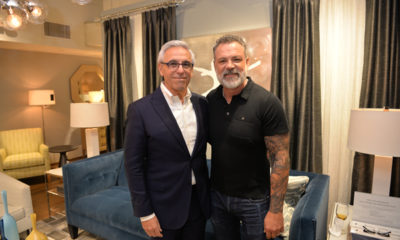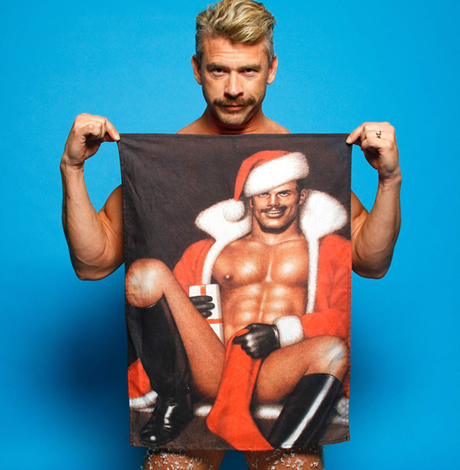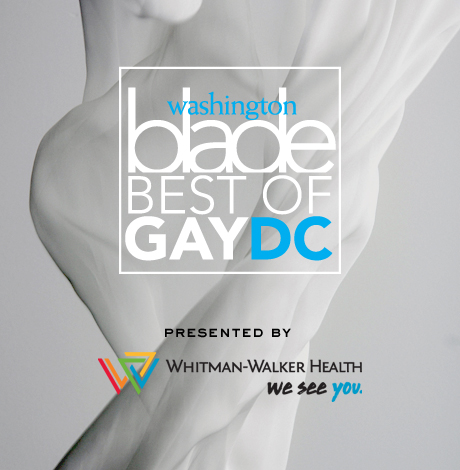Arts & Entertainment
Working to end HIV
Foundation plans D.C. fundraiser to boost vaccine effort

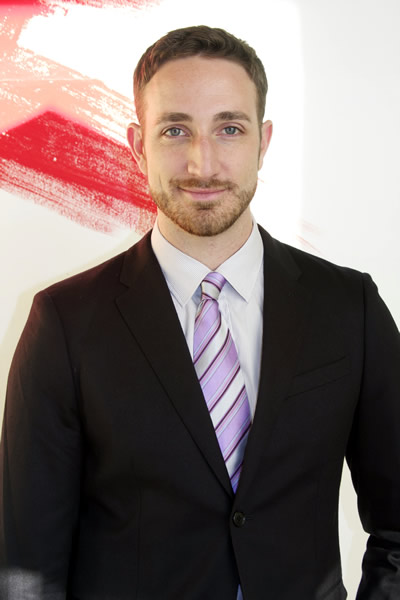
Zachary Barnett will be in town next week for an HIV benefit at Mitchell Gold + Bob Williams. (Photo courtesy Mitchell Gold + Bob Williams)
Abzyme Research Foundation is partnering with Mitchell Gold + Bob Williams (1526 14th St., N.W.) and Cork Wine Bar for “Taste for Change,” a wine tasting and fundraising event to support an effort to end HIV/AIDS, on Tuesday at 7 p.m.
“We’re really excited to bring the presentation to D.C.,” says Zachary Barnett, executive director and found of ARF. “There’s a lot of energy … with the non-profit world and the government sector.”
ARF is a non-profit organization hoping to end HIV/AIDS by researching abzyme technology to produce the world’s first effective therapeutic HIV vaccine. Barnett compares this technology to the recent advancements and FDA approval for a shingles vaccine.
“Once you’re infected with chicken pox, you have that virus in your cells forever, but what the vaccine does … it’s effectively suppressing new outbreaks of infection,” Barnett says. “What we’re talking about is effectively the same. What if we could create a vaccine after you’ve already been infected, that would suppress the virus in your system.”
Barnett, infected by a partner in 2008, was recently named one of The Advocate’s “40 Under 40.” His nomination came at a time when he was considering being more public about his status. A friend had recently called him out on it.
“The chain of events was so weird,” Barnett says. “I kind of made the decision … and then The Advocate called me a couple days later … It was a really cool and serendipitous chain of events. I was happy to be given the opportunity to do it.”
Barnett started as a marketing and events consultant when he moved to New York City in 2006.
After finding out he was infected, Barnett brought his skills and passion to the world of HIV research advocacy.
“Fundraising and non-profit work, a lot of it is storytelling and communication,” Barnett says. “Creating event series and forums to talk to people and engage in communication is key to success, especially in the beginning.”
What started as a moment of personal crisis became a reason for Barnett to do more research on HIV/AIDS and its treatments, including the state of HIV/AIDS internationally. This research brought led him to a 2008 video by CBS, “Possible HIV Cure” with Dr. Sudhir Paul and his science team at University of Texas.
Barnett reached out to Paul and with the help of Marie LaFrance from Interview Magazine, threw a gala for the researcher and launched a PSA featuring Wilson Cruz, Justin Bond and Lady Bunny to engage supporters.
“I’m incredibly inspired by the doctors we’re working with,” Barnett says. “I think they’ve developed such an interesting, creative approach to battling the disease.”
Paul was first awarded a grant from the National Institute of Health in 1990. He’s published a paper identifying the CD4 binding site on the HIV outer coat as the “Achilles heel” of HIV. He has found that the human immune system has the innate ability to produce abzymes.
An abzyme, or an antibody-enzyme, is capable of starting the destruction of targeted molecules. A single molecule of an abzyme can trigger the destruction of thousands of target molecules and abzymes produced in animals have successfully blocked infection of human cells by genetically diverse HIV strains.
“This is completely hypothetical, and maybe getting ahead of ourselves, but … the abzyme technology has numerous applications,” Barnett says. “If this turns out to be a really dynamic technology that has the ability to make an impact on HIV, I’m excited to see where else we can take it.”
ARF’s goal is to raise $1.5 million for a FDA Phase I human trial, ideally in an HIV-positive population, to prove the E-Vaccine is safe and will induce antibodies that neutralize HIV in laboratory tests. According to its website, ARF, which has already covered its operation funding for the year, has raised $50,000 so far.
“We’re looking at a post-infection vaccine … exploring alternatives for daily anti-retroviral treatment. Can we develop a vaccine that will produce a robust antibody response in populations infected by HIV?,” Barnett says of the endeavor.
The Phase I human trial is the third milestone required to obtain FDA approval, according to an introduction brochure by ARF. The last being phase two and three efficacy trials to prove that the E-Vaccine will protect individuals who are at risk of being infected and prove control of virus infection occurs in infected individuals receiving the vaccine.
The organization has already secured a donor who will match the first $200,000 donated.
For more information on the organization or to donate, visit endhiv.com. The organization can also be followed at twitter.com/endhiv. To learn more about the fundraising event and to RSVP, email [email protected].
Theater
Ford’s ‘First Look’ festival showcases three new productions
A chance to enjoy historical dramas for free before they’re completed
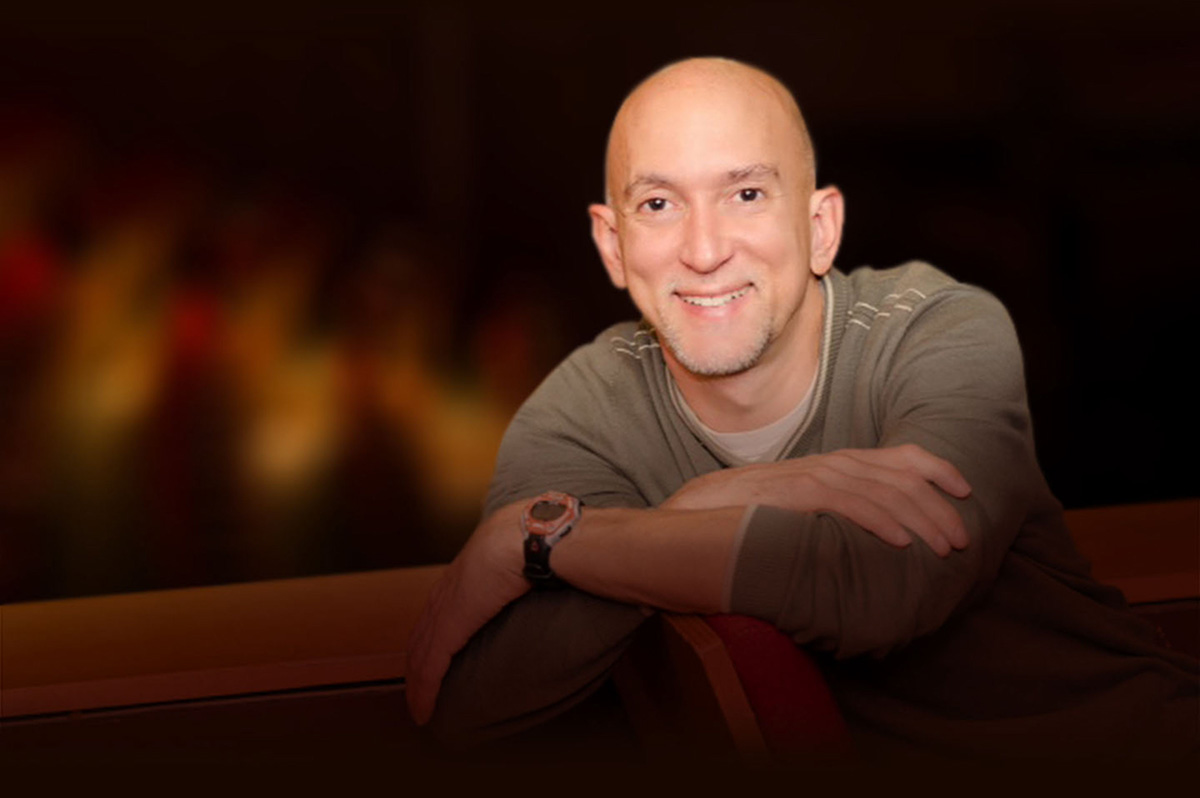
The Ford’s Theatre Legacy Commissions: A First Look – 2026
Jan. 16 & 17
Ford’s Theatre
511 Tenth St., N.W.
FREE
Fords.org
When Ford’s Theatre debuted its new plays festival, “A First Look,” in 2023, it was unclear whether people would come for the staged readings.
“Before the pandemic if you announced the reading of a play, 12 people might show up,” says José Carrasquillo, director of artistic programming at Ford’s Theatre. “Since then, we’ve experienced comparatively massive turnout. Maybe because it’s cheap, or because of the very newness of the works.”
This year’s fourth edition showcases readings of three pieces currently in varied stages of development. The free, two-day festival offers audiences a chance to encounter historical dramas long before they’re completed and fully produced. None are finished, nor have they been read publicly. And befitting the venue’s provenance, the works are steeped in history.
The festival kicks off with “Springs” by playwright Jeanne Sakata and directed by Jessica Kubzansky. Commissioned by The Ford’s Theatre Legacy Commissions, it’s the both epic and personal story of Sakata’s Japanese American family including her grandfather’s experience in an internment camp.
“Sakata’s immigrant grandfather was an exceptionally skilled farmer who helped to stave off starvation in the camp. Still, he never gave up on the idea that he belonged in America. It’s very much a story of today,” says Carrasquillo.
Unlike “Springs,” the festival’s two other works weren’t commissioned by Ford’s. But they both fit the history brief and likely will benefit from the exposure and workshopping.
“Providence Spring,” by California based playwright Richard Helesen and directed by Holly Twyford, portrays Clara Barton (played by local favorite Erin Weaver) as a hero beyond the Red Cross whose then-radical initiatives included cataloguing the Civil War dead, many pulled from mass graves.
Directed by Reginald L. Douglas, “Young John Lewis: Prodigy of Protest” explores a slice from the life of the legendary civil rights activist and longtime congressman. With book and lyrics by Psalmayene 24 and music by Kokayi this collaboratively staged reading between Ford’s and Mosaic Theater is slated to premiere fully produced at Mosaic as a 90-minute musical in the spring of 2026.
“When I was hired at Ford’s in 2018, we began discussing hiring writers who do historical drama,” says Carrasquillo. “Our intention was resolute, but we didn’t do it right away. It took getting through the pandemic to revisit the idea.”
At the same time, the racial reckoning spurred Ford’s to hire playwrights of color to tell stories that had previously been forgotten or ignored.
For Carrasquillo, who is gay, the impulse to commission was crystalized when he saw the film “Hidden Figures,” a true story about “three brilliant African-American women — at NASA during the Space Race, overcoming racial and gender discrimination to make crucial contributions to America’s spaceflight success.” He says, “the film floored me. How many stories like this are there that we don’t know about?”
One of the festival’s happiest experiences, he adds, was the commission of playwright Chess Jakobs’s “The American Five” and its subsequent success. It’s the story of Martin Luther King Jr. and his inner circle, including Bayard Rustin (MLK’s brilliant, unsung gay adviser) leading up to the 1963 March on Washington. The play later premiered fully produced in Ford’s 2025 season.
Increasingly, the readings at Ford’s have become popular with both artists and audiences.
At Ford’s, Carrasquillo wears many hats. In addition to selecting plays and organizing workshops, he serves as an in-house dramaturg for some of the nascent works. But he’s not alone. Also helming the festival are senior artistic advisor Sheldon Epps, and The Ford’s Theatre Legacy Commissions advisor Sydné Mahone.
Because the plays are in development, comments from directors, dramaturgs, and the audience are considered and may become part of the playwrights’ rewrites and changes. If and when the play resurfaces fully produced, audience members might find their suggestion in the completed work.
Is this year’s festival queer influenced? Yes, both by those involved and the topics explored.
Carrasquillo explains, “While Sakata’s “Springs” is primarily about immigration, its message is relevant to the queer community. Civil rights are being taken away from us. We need this playwright’s story to know what has happened and what can happen to any of us.
“Many of Ford’s legacy commissions underscore the importance of civil rights in our country and that’s important to all of us. Queer and not queer.”
Bars & Parties
Mid-Atlantic Leather kicks off this week
Parties, contests, vendor expo and more planned for annual gathering
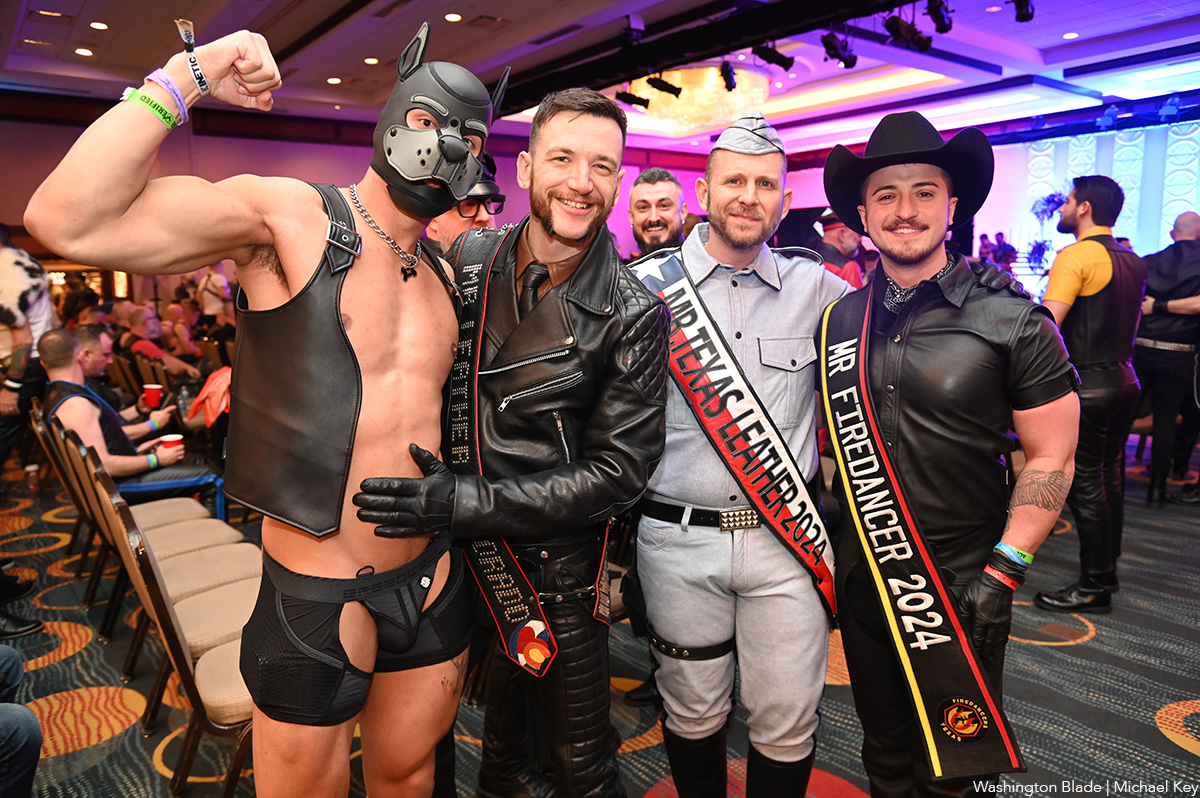
The Mid-Atlantic Leather Weekend will begin on Thursday, Jan 15.
This is an annual three-day event in Washington, D.C., for the leather, kink, and LGBTQ+ communities, featuring parties, vendors, and contests.
There will be an opening night event hosted the evening of Thursday, Jan. 15. Full package and three-day pass pickup will take place at 5:30 p.m. at Hyatt Capitol B. There will also be “Kinetic Dance Party” at 10 p.m. at District Eagle.
For more details, visit MAL’s website.
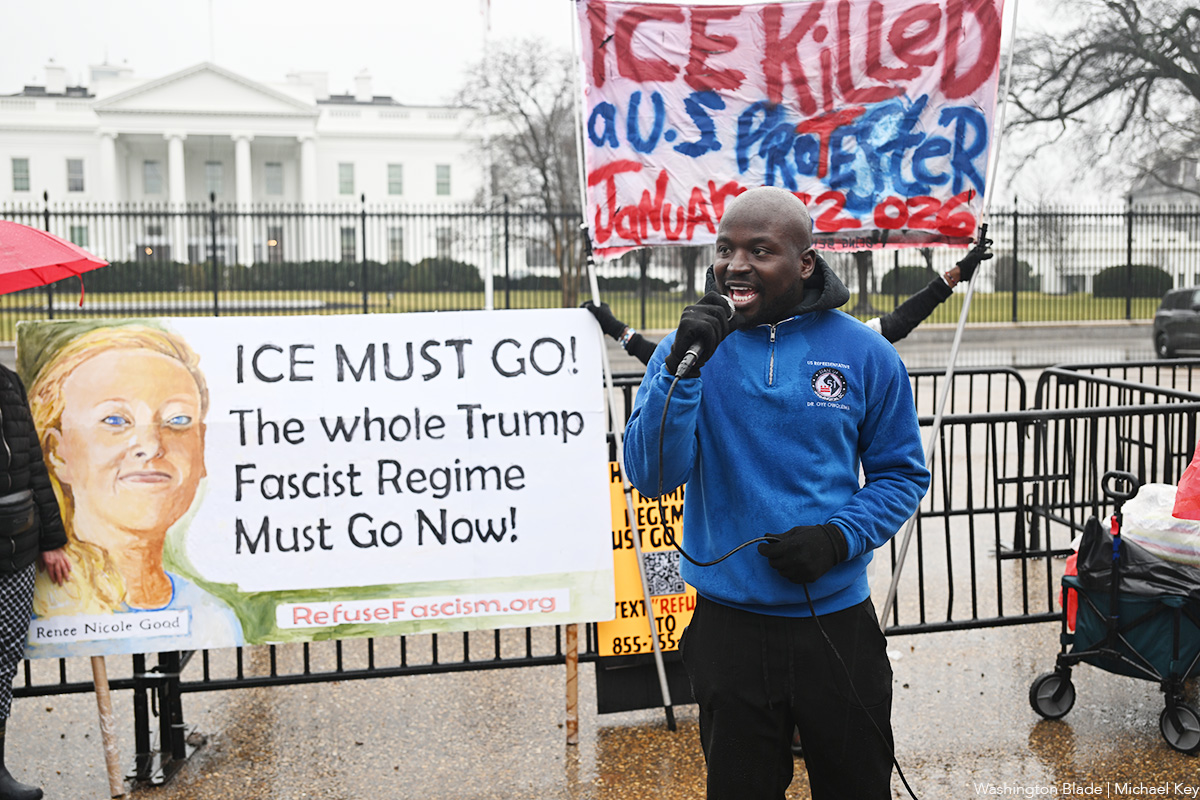
A protest was held outside of the White House on Saturday following the killing of Renee Nicole Good by a U.S. Immigration and Customs Enforcement agent in Minneapolis. Across the Potomac, picketers held signs calling for “Justice for Renee” in Tysons, Va.
“ICE Out For Good” demonstrations were held in cities and towns across the country, according to multiple reports. A march was held yesterday in Washington, D.C., as the Blade reported. Further demonstrations are planned for tomorrow.
(Washington Blade photos by Michael Key)
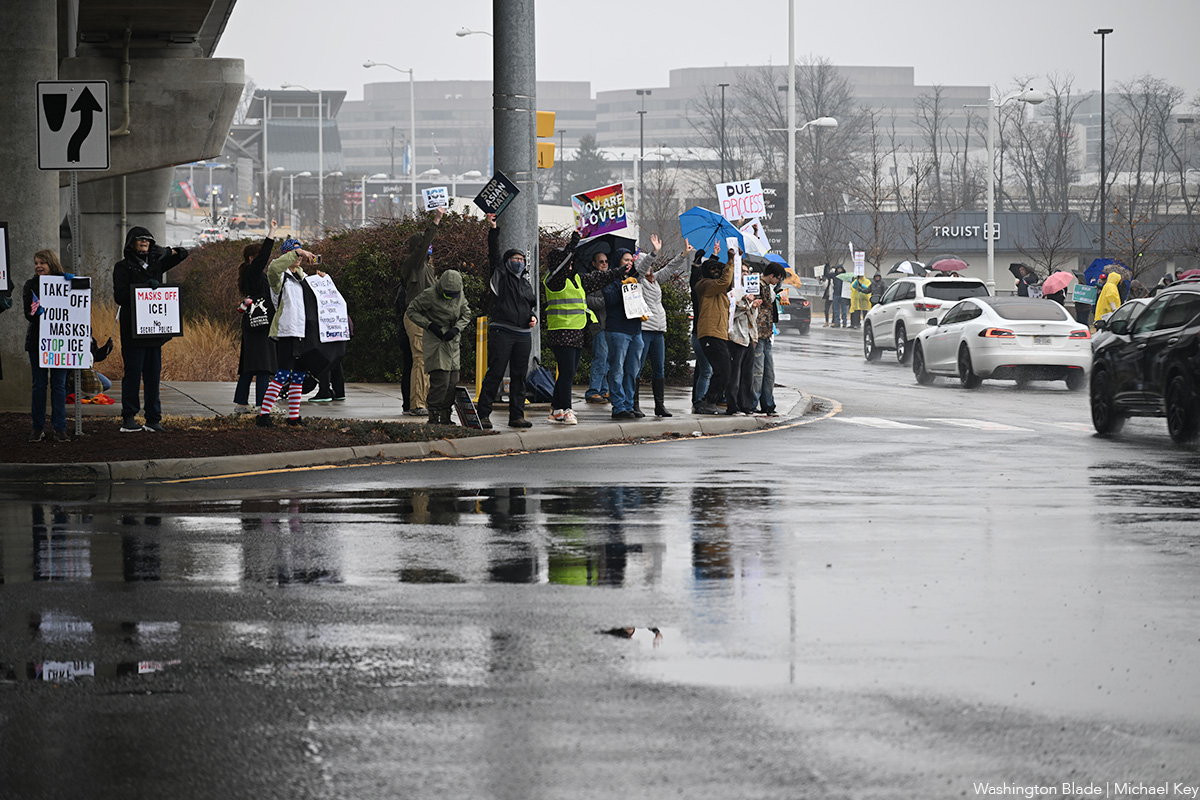
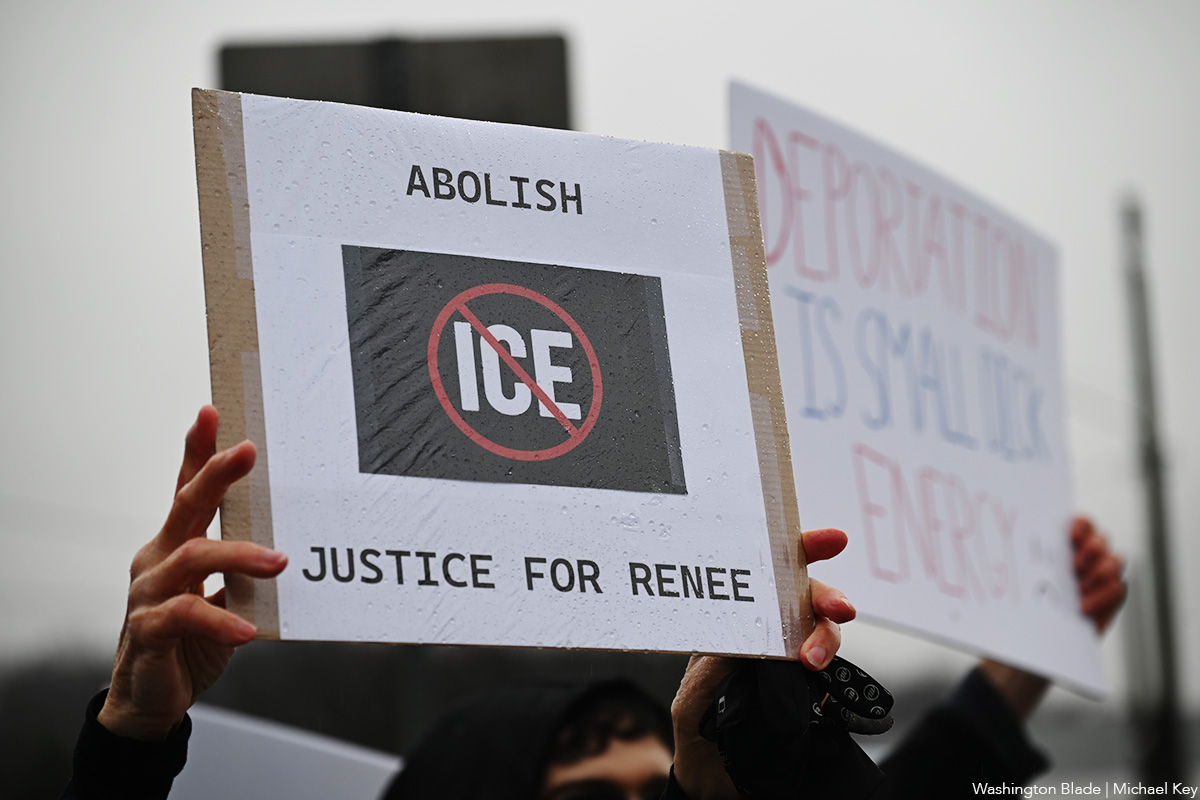
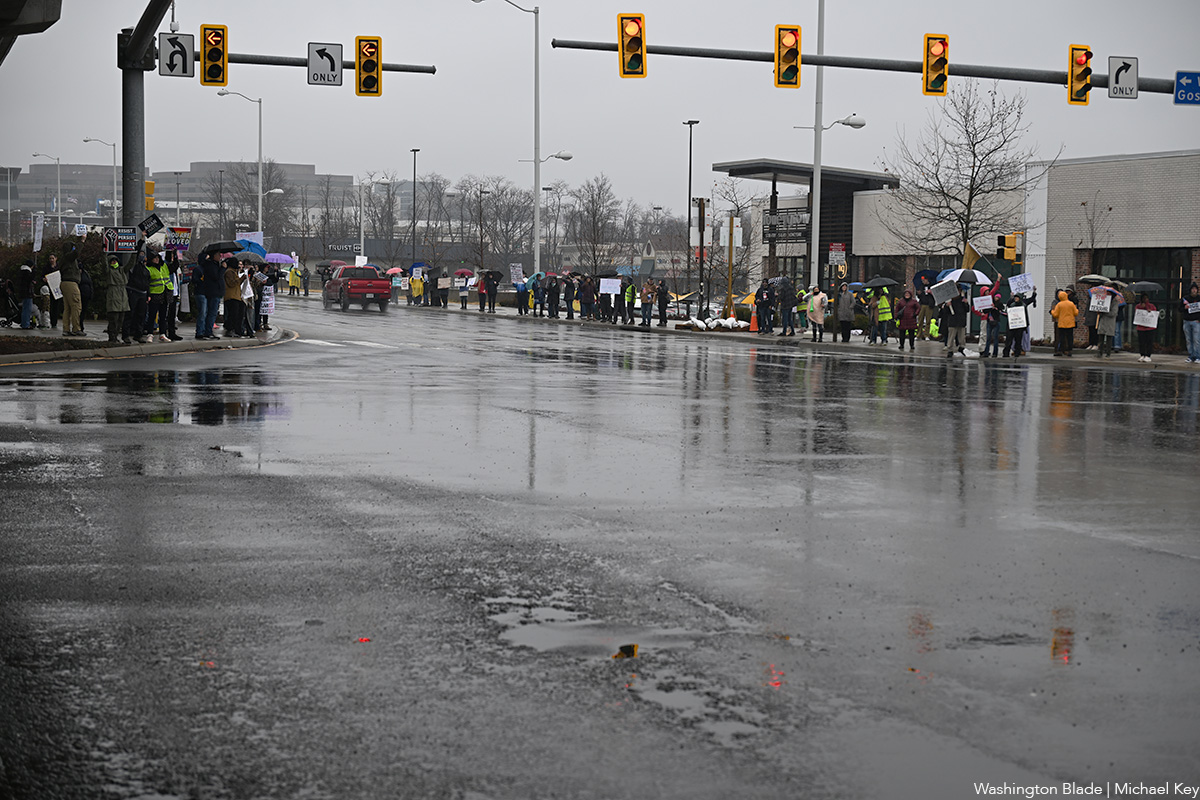
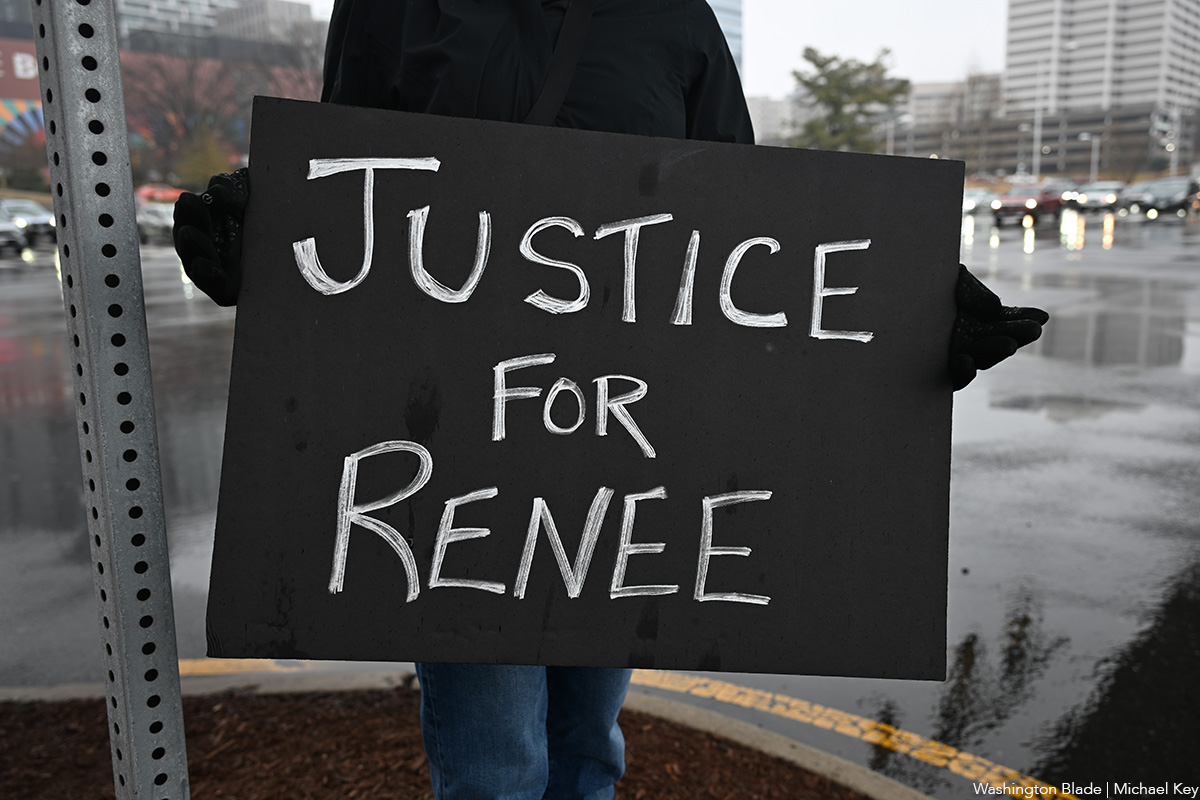

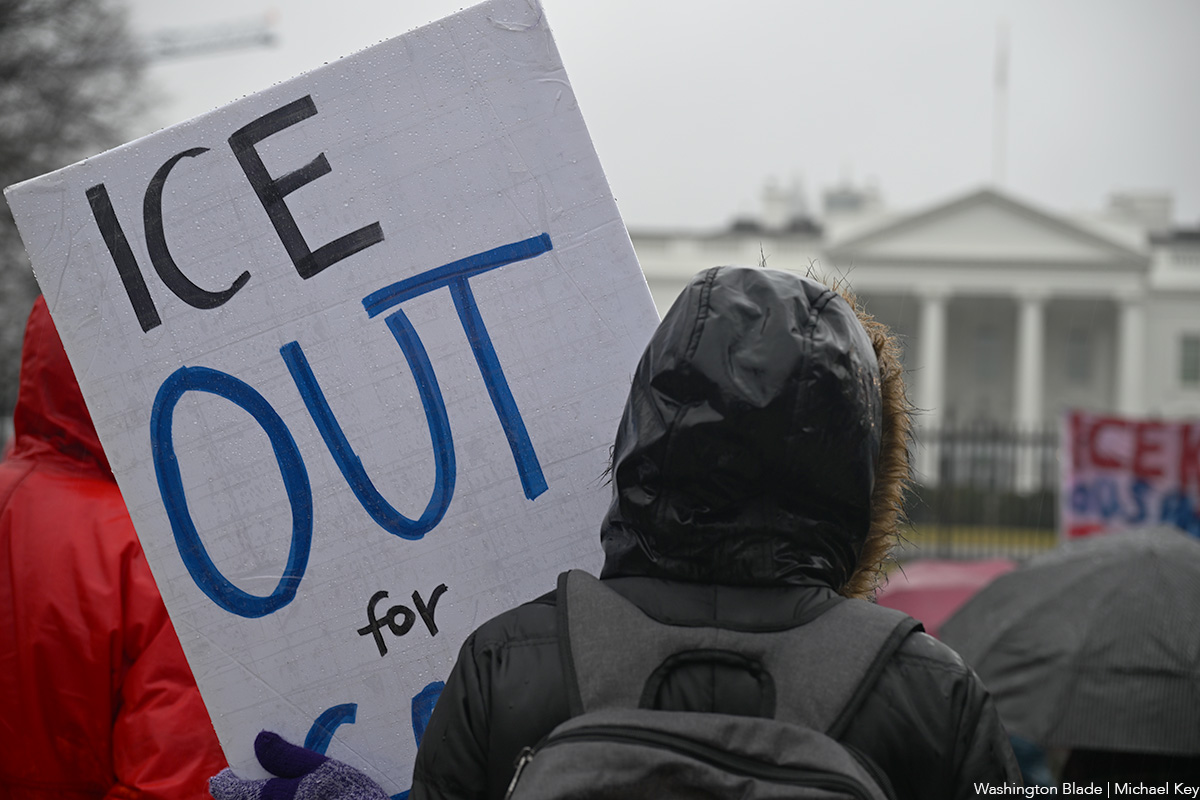
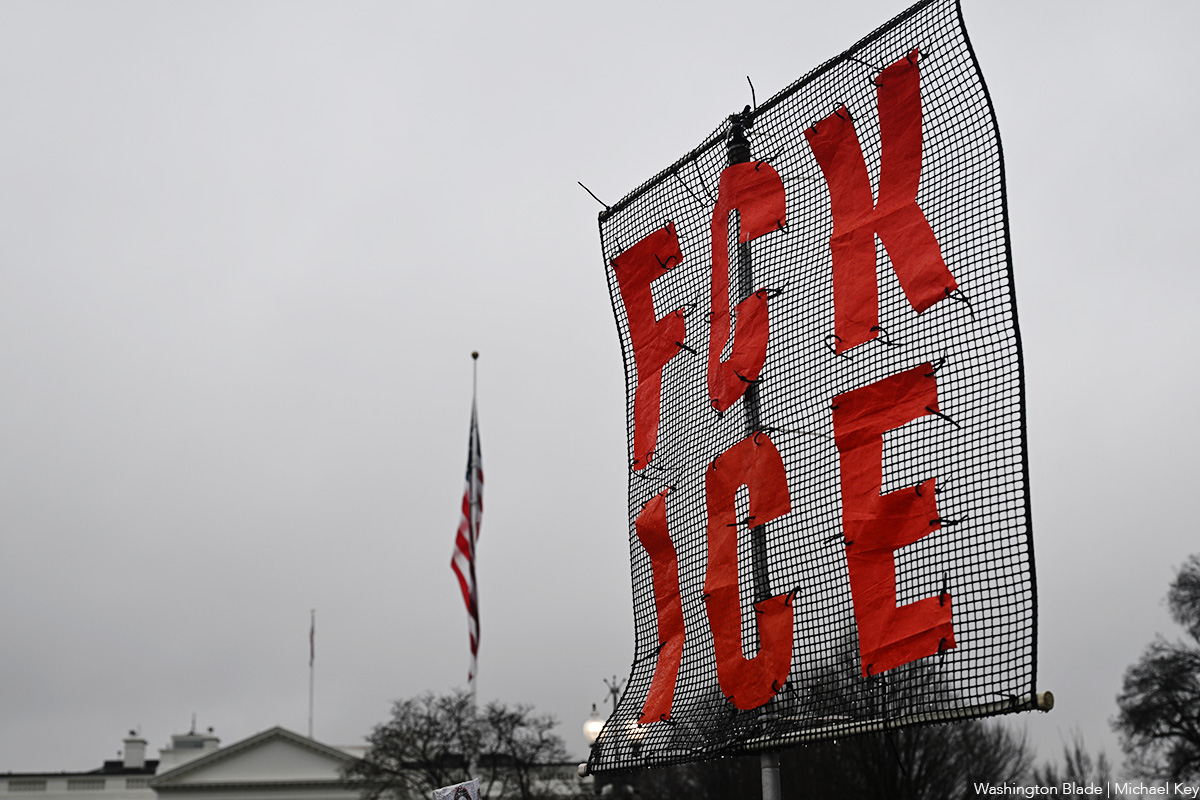
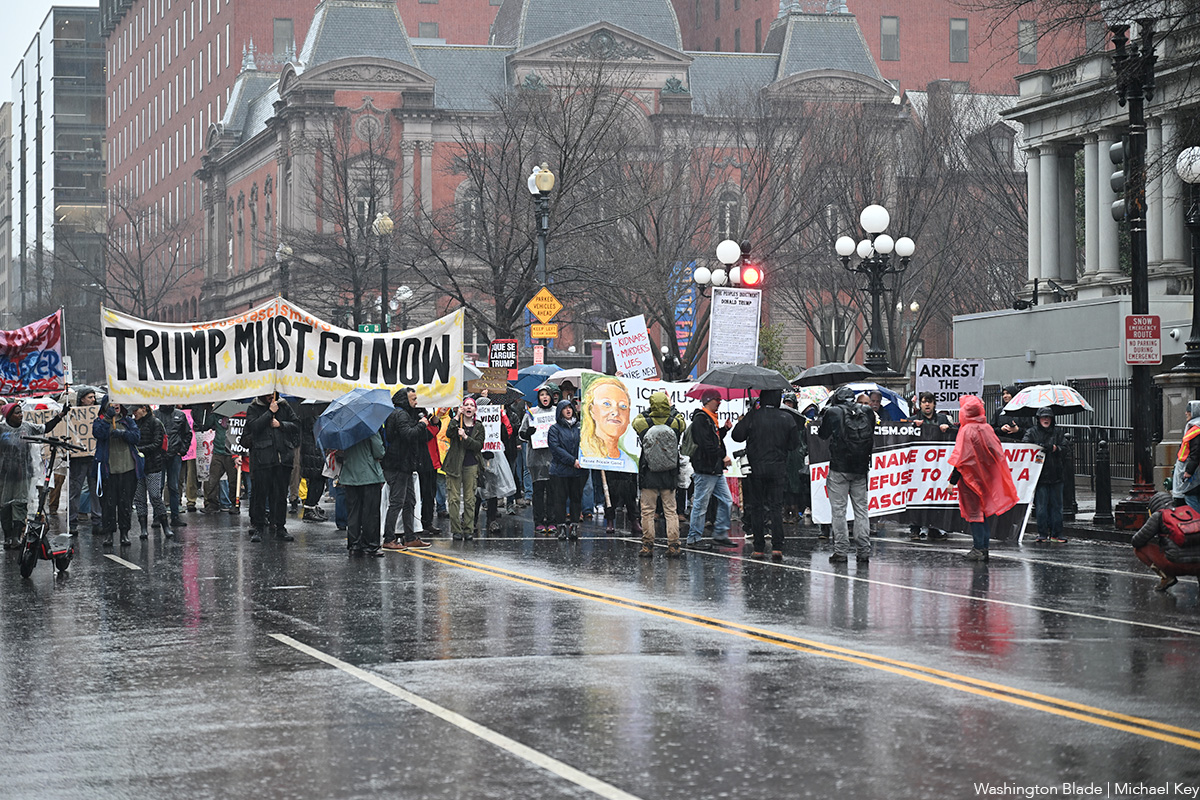

-

 Colombia5 days ago
Colombia5 days agoGay Venezuelan man who fled to Colombia uncertain about homeland’s future
-

 Arts & Entertainment5 days ago
Arts & Entertainment5 days ago2026 Most Eligible LGBTQ Singles nominations
-

 District of Columbia4 days ago
District of Columbia4 days agoKennedy Center renaming triggers backlash
-

 District of Columbia4 days ago
District of Columbia4 days agoNew interim D.C. police chief played lead role in security for WorldPride

